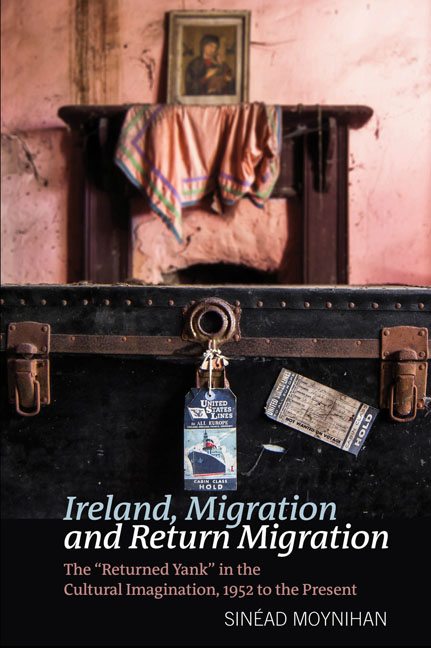 Ireland, Migration and Return Migration
Ireland, Migration and Return Migration – Why … why would a Yankee from Pittsburgh want to buy [that cottage]?
– I’ll tell you why, Michaleen Oge Flynn […] Because I’m Sean Thornton, and I was born in that little cottage. And I’ve come home, and home I’m gonna stay.
The Quiet Man (dir. John Ford, 1952)‘Tis the beginning for Frankie McCourt. He’ll come back in a few years with a new suit and fat on his bones like any Yank and a lovely girl with white teeth hangin’ from his arm.
Frank McCourt, Angela's Ashes (1996)In February 1952, a parliamentary debate took place in Dublin on the shortcomings of Ireland's nascent tourist industry. During the debate, Fianna Fáil T.D. for Mayo East, Seán Flanagan, launched into a vitriolic diatribe against the Irish-American tourist. ‘There is no greater menace coming into this country than the “returned Yank,”’ claimed Flanagan. He continued:
They come in here and, merely because they have gone outside and have done rather better in America than they expected they would ever do, they damn all Irish institutions. The Irish people are backward, slovenly, miserable and lowdown, and all their institutions, including this venerable Assembly, are all so much ‘my eye’ and mere rubbish. They do nothing, in other words, but pass uncomplimentary remarks from the time they arrive here until they leave, and when they go back to America they do their level best, particularly amongst the Irish over there, to run down this unfortunate motherland of theirs and to describe it only as a refuge for lazy, good-for-nothing fools who had not got the enterprise to get out of it in time.
‘The Returned Yank,’ Flanagan concluded, is ‘the meanest form of animal that ever came amongst us.’ Deputy Flanagan's representation of the ‘Returned Yank’ is radically different from 1952's more famous depiction of this figure in John Ford's film The Quiet Man, which had its Dublin premiere just four months subsequently. While Flanagan's returnees ‘do nothing […] but pass uncomplimentary remarks from the time they arrive here until they leave,’ Sean Thornton's (John Wayne) benign ‘Returned Yank’ seeks simply to reconnect with his maternal homeland, escape the demands of a gruelling urban life in Pittsburgh, marry and settle down with an Irishwoman and work the land for the rest of his days.
To save this book to your Kindle, first ensure [email protected] is added to your Approved Personal Document E-mail List under your Personal Document Settings on the Manage Your Content and Devices page of your Amazon account. Then enter the ‘name’ part of your Kindle email address below. Find out more about saving to your Kindle.
Note you can select to save to either the @free.kindle.com or @kindle.com variations. ‘@free.kindle.com’ emails are free but can only be saved to your device when it is connected to wi-fi. ‘@kindle.com’ emails can be delivered even when you are not connected to wi-fi, but note that service fees apply.
Find out more about the Kindle Personal Document Service.
To save content items to your account, please confirm that you agree to abide by our usage policies. If this is the first time you use this feature, you will be asked to authorise Cambridge Core to connect with your account. Find out more about saving content to Dropbox.
To save content items to your account, please confirm that you agree to abide by our usage policies. If this is the first time you use this feature, you will be asked to authorise Cambridge Core to connect with your account. Find out more about saving content to Google Drive.